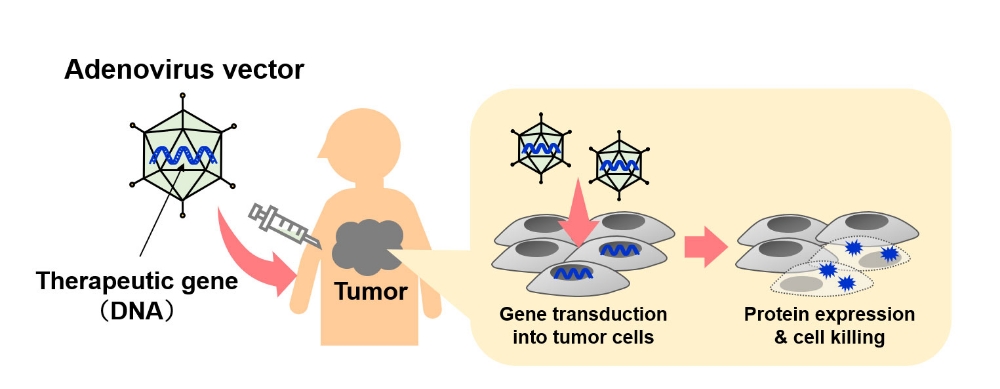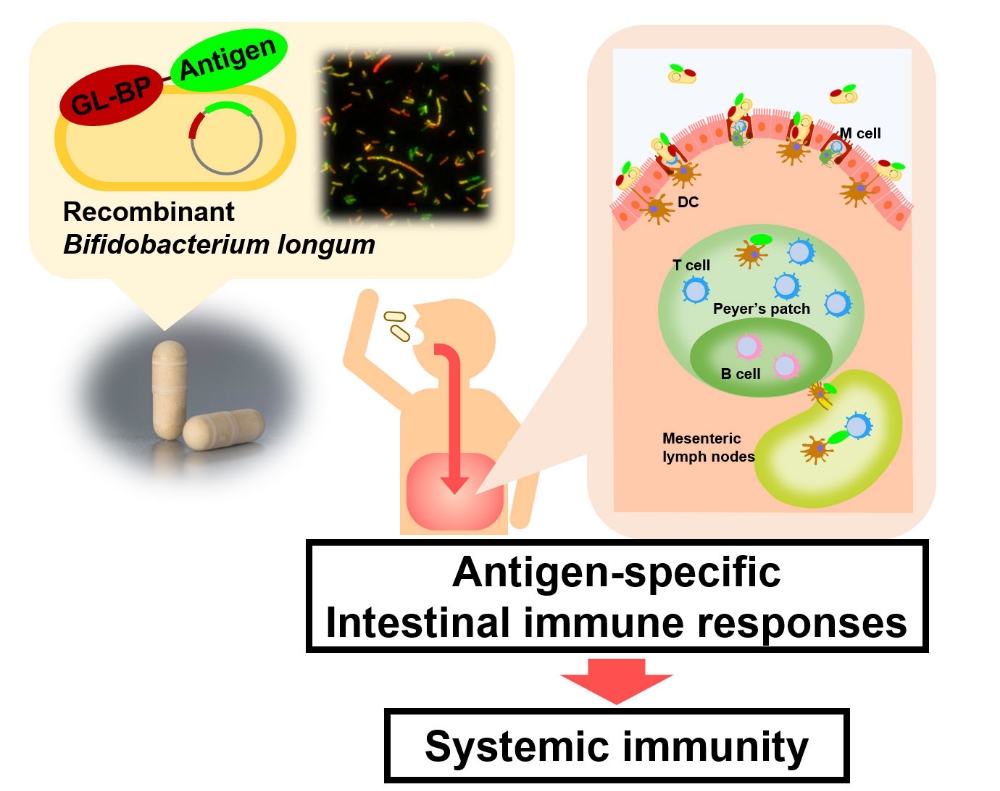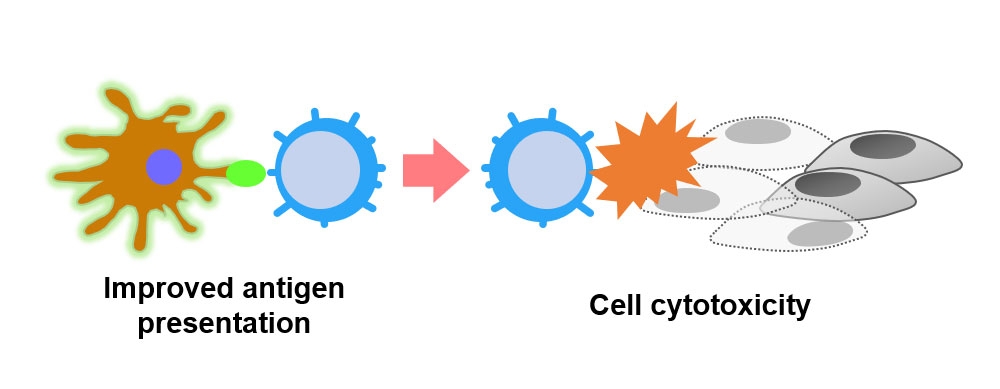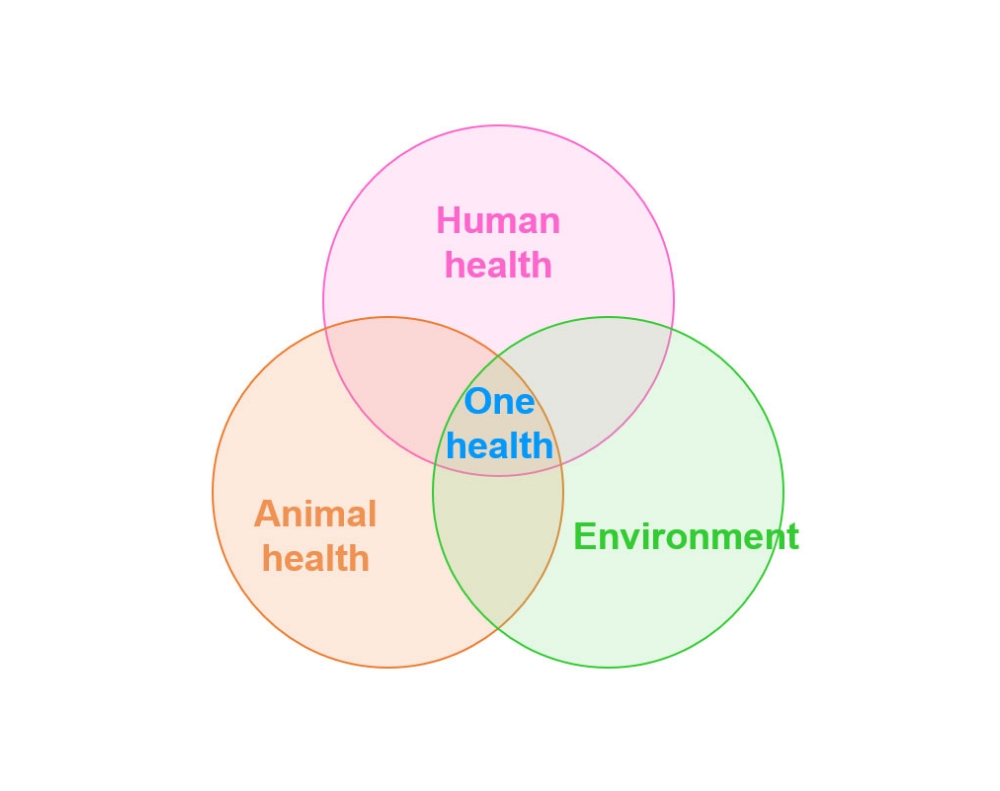Research
Our research is focusing on the translational research for novel
treatment modalities by using biologics such as virus, bacteria,
and cells for the treatment of cancer and infectious diseases.
Biologics is now widely used in the treatment for patients as
the results of advances in gene recombinant technology and
biotechnology.
For example, vaccines, antibody drugs,
immunotherapy, and cell therapy have utilized the biotechnology
for biologics. Nowadays, Biologics based on the latest
technology may solve the unmet medical need in the patients. the
need and commercial market are expecting the development of
medicine by using biologics, which can supply not only
personalized precision medicine but also vaccine development on
a global scale. We suggest a new solution for the treatment of
cancer in the aging society in recent years, and also for the
prevention of the global pandemic of infectious disease, through
the research of medicine with biologics.
in vivo cancer gene therapy by using viral vectors
Gene mutations and oncogenes are the main leading cause of cancer in patients. In vivo gene therapy is one of the promising candidates to inhibit cancer cell proliferation, invasion and metastasis by replacing these oncogenic genes with normal genes or by artificially introducing genes, resulting in the suppression of the oncogenes. We are studying the feasibility of gene therapy using viral vectors such as recombinant adenovirus vectors efficiently introducing the therapeutic genes into to cancer cells. We hope that cancer gene therapy can contribute to the development of minimally invasive treatment and tailor-made medicine for cancer treatment.

Oral vaccine by using recombinant Bifidobacterium
The human body has various organs responsible for immune response, among which the intestinal immune system plays important roles to regulate innate and adaptive immune responses. We have developed that an oral vaccine by using the intestinal probiotic Bifidobacterium that induce adaptive immunity against infectious diseases and cancers via activation of the intestinal immune system. The oral vaccine is based on a technology to display antigens on the surface of Bifidobacterium by membrane anchor protein. We have proved the vaccine efficacy against hepatitis C, typhoid fever, and malignant tumors in animal experimental models. We hope that the oral vaccine using Bifidobacterium will be a next-generation mucosal vaccine for everyone who wants a safer vaccination without the injection needle.

Dendritic cell based cancer medicine
In recent years, cancer immunotherapy is considered as one of the first line treatment options for cancer. Dendritic cells play an important role in induction of the immune responses by presenting cancer antigens to T cells that are responsible for the adaptive cancer-specific immune responses. Dendritic cell therapy is one of the potential modalities of in ex vivo immunotherapy, which uses patient-derived dendritic cells artificially pulsed with cancer antigens to efficiently induce cancer-specific T cell immune responses against cancer cells. We hope that dendritic cell therapy will become one of the options for personalized medicine for cancer in the future.

International epidemiological study for diarrheal bacteria and antimicrobial resistance in Indonesia
We conduct international epidemiological surveys on diarrheal bacteria and antimicrobial resistance such as typhoid fever and cholera, in cooperation with the Kobe University Hospital, Kobe University Graduate School of Health Sciences, and Airlangga University in Surabaya, Indonesia. In both developed countries and developing countries, antibiotic-resistant bacteria has spread and caused a severe burden of healthcare systems. We hope our international study may contribute to the appropriate use of antibiotics and the control of drug-resistant bacteria for the One Health Approach.
